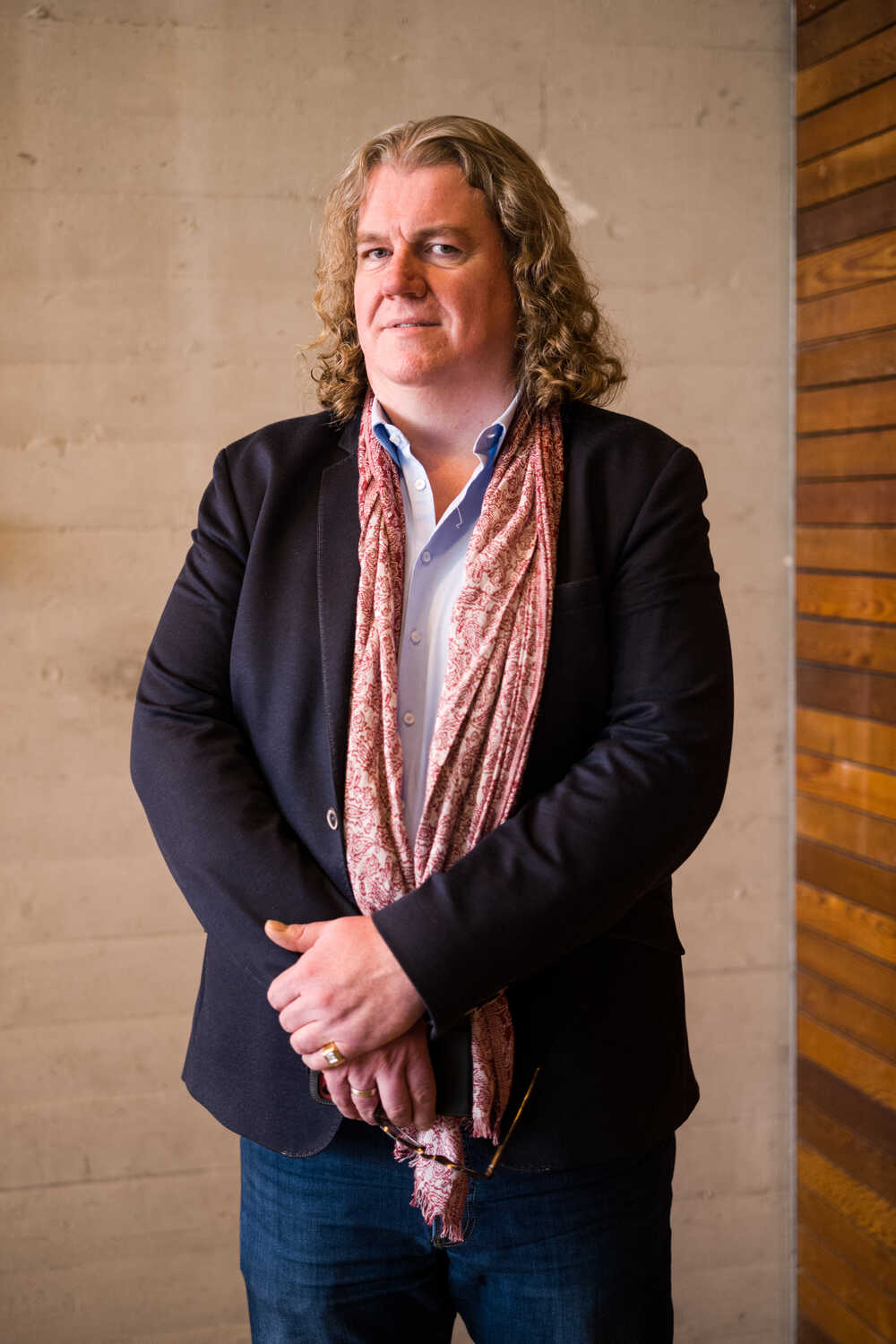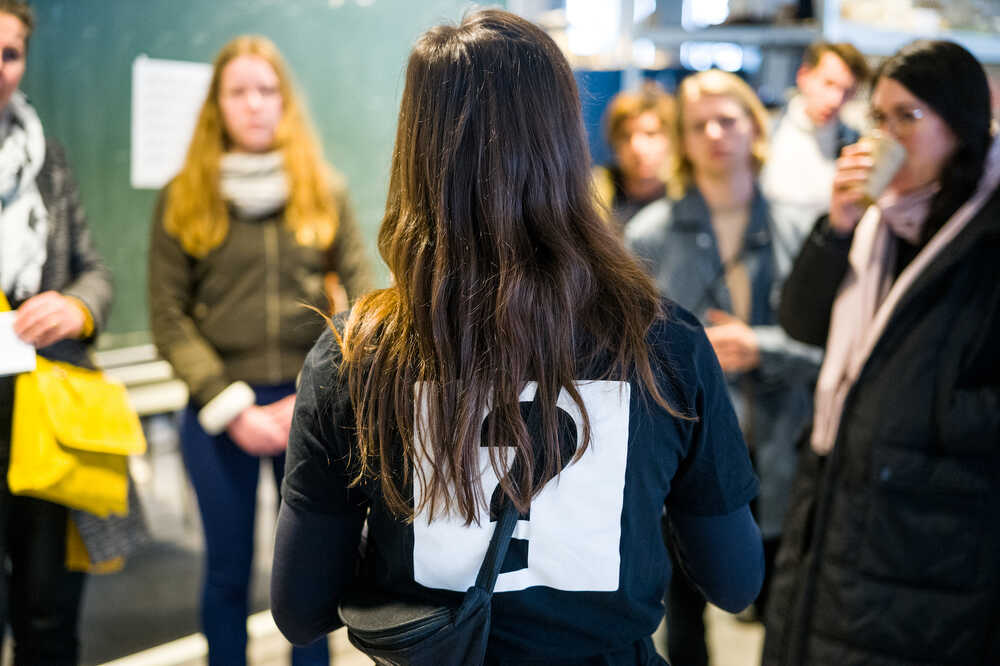Interview with Raf De Keninck on New BA Programme at DAE
The new generation of students "is more radical than ever in the way they look at life," says De Keninck. "This generation of young talents demands a new way of education because their learning activity – within a digitised world– cannot be compared with one of the previous generations."
In this interview, De Keninck – who joined the Academy in 2019 after a career in music and creative higher education – explains the thinking behind this major change in the way education is delivered at DAE, how it reflects wider shifts in society and why the 21st century is "the century of the designer".
→ What is the role of the designer and design education today?
Raf De Keninck: Society is facing many challenges today. Let's think, for example, the paradigm in geopolitics, the much-needed change of perspective on energy transition as well as climate change, social inequalities, technological dominance. The list is endless. What we need is a fundamental shift in the way we approach problems and designers have a unique position to not only work with specialists but also everyone else who is involved in these necessary transitions, to help them look at these issues and challenges differently. Before we can solve anything, we first need to find the right questions collectively. That is why I am also convinced that the 21st century is the century of the designer.
→ What is your vision for the renewal of DAE's BA education programme?
RDK: Design education needs to reflect the changing society we live in. We are not only interested in equipping our students with formal design skills, but in helping them to develop a habit of curiosity and criticality, where they can ask the right questions.

When I started working at DAE in 2019, I requested the curriculums and programme descriptions of all BA departments. After many inquiries, it turned out there was little information available, everything was in the minds of the individual tutors. It is emblematic to many design educations today – there is a great level of ambiguity around what design is, and in turn, it is very difficult for students to foster and discover their own urgency within the discipline itself.
With this educational renewal, we took the opportunity to put everything neatly on paper again, and in doing so we are establishing a common ground. It is important to have an overview in order to shape the current and future developments more reflectively and more responsively.
In addition, we are at a tipping point in many sectors and education is no exception. We are welcoming a completely new generation of students: the so-called digital natives. A generation that is more radical than ever in the way they look at life. This generation of young talents demands a new way of education, because their learning activity – within a digitised world – cannot be compared with one of the previous generations.

“This new system enables us to keep up to date with developments in our field and respond to the urgent topics around us”
→ One of the central themes of this new programme is ‘student centric’. What does that mean? What can students expect?
RDK: This new programme is built around the student, so to speak. The student receives optimal coaching and guidance in structuring their individual programmes. They begin by determining the Studio line (stackable in modules of semesters) in their first year, and end their study with a completely free Focus programme and being able to decide for themselves who will support their fourth year and graduation project. In doing so, we are giving our students the greatest possible autonomy and thereby also providing the necessary attitudes that will be of great importance in their future development and practice beyond graduation.
We have transitioned from departments to Studios It is more than just a name change. It allows flexibility for DAE to shift our focus based on the needs of our students or society at large, while still remaining core to the transdisciplinary approach we have long had towards design education. The creation of Studios gives us the opportunity to renew our offerings and attract Studio Leaders differently.
Something Joseph Grima and I aspired to do was to make our educational offering much more flexible and to develop our programme more broadly. We have developed an ongoing open call system for new Studios, whereby students and lecturers are also involved in the selection process, creating much more transparency in the way our Academy is structured. All Studio Leaders are practising professionals who have proven themselves as exceptional designers in the field, and they are working with specific urgency in our world. The studios will run for a maximum of two periods, four years each.
This new system enables us to keep up to date with developments in our field and respond to the urgent topics around us. Take the three newest studios for example: Studio Technogeographies focuses on the politics around the complex system of design, extraction transportation, manufacturing, commerce, consumptions, etc; Studio Silva Systems looks to the forest - one of the most essential and threatened habitats on our planet - as a starting point for design; Last but not least; and Studio Digital Native interrogates systems of oppression operating through our digital infrastructures and media and how these manifest in our material world.
"For what we make to be meaningful, we must first learn how to look critically at the world"
→ DAE has a long history of challenging the definition of design through making, how does this new programme reflect this?
RDK: At DAE, we strongly believe that thinkingand making are inseparable.Our curriculum is built around the principle of pluralism - an educational approach that offers room for different visions of design to coexist. We believe more strongly than ever in teaching the practice of making, but we also believe that in order for what we make to be meaningful, we must first learn how to look critically at the world.
Making in this sense includes activism, community organising, policy making, investigative journalism, as well as many of the other more familiar forms design already takes. For this reason we place special emphasis in the new curriculum on new forms of representations (for example, with the Digital Media Professorship led by Ian Biscoe) as well as collaborations with specialist laboratories such as the Textile Lab in Tilburg andMAKE Eindhoven.
→ Beyond the Studios, could you speak about the other two pillars of this new programme, the Fundamentals and the Reflections? How do they prepare oung designers for the changing needs of society?
RDK: The Fundamentals contain what we believe every student at DAE should know. With Fundamentals, we are covering the entire range of knowledge regarding formal design skills, material understandings, production techniques and contextual theory, but entrepreneurship also has a place within this programme. Fundamentals starts with an extensive introduction in the first year and continues into the second half of the third year, after which students enter the final phase of the BA programme. Fundamentals is set up as a long foundational path parallel to their individual explorations and discoveries.
The Reflections programme is completely new to the BA programme. Society is in need of reflective design-practitioners that deliver new questions and/or answers to emerging and urgent needs in this world. This programme will be led by one of 15 coaches, who themselves are also cultural practitioners. They will provide both group and individual guidance for students on how best to approach and structure their learning within the BA degree. The coaches are there to help facilitate conversations around the students’ individual needs and urgencies. It is designed to be a free mental space, free from formal assessments, for students to develop their critical awareness as well as their positioning within their discipline.
“Many of our alumni will venture into other disciplines and act as a catalyst, inspiring many other professionals to look at things differently”
→ Where do you imagine the students from this new BA programme to be, in 10 or 20 years?
RDK: Our alumni will continue to fill an important place in the likeness of their predecessors. They will have an even wider presence in society with a ground-breaking attitude and knowledge. I can imagine that many of our alumni will venture into other disciplines and act as a catalyst, inspiring many other professionals to look at things differently, and in turn, find many solutions to the challenges that our world is facing today.